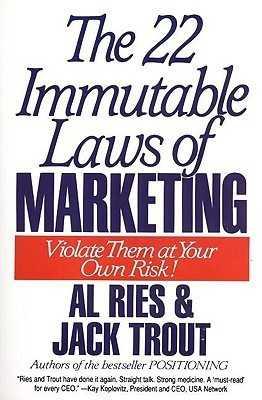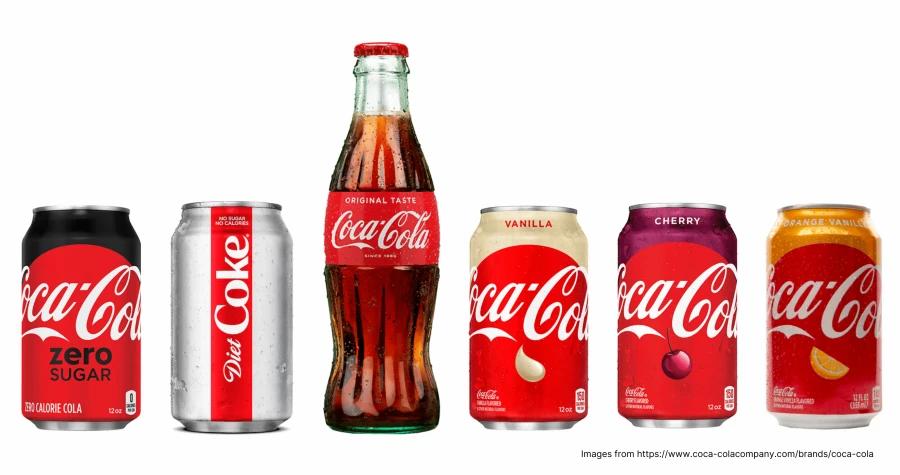Explore the World's Best Ideas
Join today and uncover 100+ curated journeys from 50+ topics. Unlock access to our mobile app with extensive features.
Rules that determine success and the failure
The book focuses on the fundamentals of marketing and how to avoid breaking the law.
Each marketing law offered in the book is supplemented with clear and actual examples from the history of well-known brands (such as IBM, Coca-Cola, Xerox, Starbucks, and so on) vs examples from firms that no longer exist on the market.
As stated by the authors, Al Ries and Jack Trout, certain firms have advanced and grown in popularity, expanded their business lines, or simply improved their sales for a given range because their management found and followed the marketing rules described in the book.
104
587 reads
1: The Law of Leadership
Better than having a superior product to the competitors is being the first in a market.
People remember the first man on the moon and the first aviator, but no one recalls the second.
Example: Tesla, is the first electric car company to offer a long-range on its electric cars.
101
636 reads
2: The Law of Category
If your category already has a first, you should try to create a new category in which you may be first.
Amelia Earheart, for example, was the third person to fly solo across the Atlantic Ocean. However, she is not well-known for this. She is well known for being the first woman to do this endeavor. As a result, by inventing your own category, you may become renowned and profitable.
Note: Law of Category is similar to the Blue Ocean Strategy concept.
102
531 reads
3: The Law of the Mind
When a consumer has made up their mind, it is impossible to change their opinion.
As a result, the authors advise you to avoid wasting marketing dollars attempting to persuade individuals to change their beliefs.
Furthermore, you should strive to be the first thought of your consumers. Being first in the marketplace is only crucial because it boosts your chances of being first in the thoughts of your clients. This is due to the fact that marketing is a fight for perception rather than goods.
105
482 reads
4: The Law of Perception
According to the authors, there is no objective fact in the marketplace.
As a result, all that exists in the realm of marketing are perceptions in your consumers' minds. Your marketing should exist only to manipulate these perceptions.
You can overcome your flawed marketing instincts only by researching how perceptions are generated and concentrating your marketing campaigns on those preconceptions.
103
438 reads
5: The Law of Focus
Owning a word in the consumer's mind is the most powerful thing in marketing.
Having a defined context means that when people hear this term, they will associate it with the brand that owns the word.
Example: Gillette is synonymous with shaving blades and Google is synonymous with an internet search.
98
409 reads
6: The Law of Exclusivity
According to this law, two firms cannot own the same word in the minds of prospects.
As a result, the authors advise against spending money to acquire a word that someone else already has.
Burger King attempted to own the term "quick," but it was already owned by McDonald's, thus they failed and lost millions.
If you try to steal your competitor's term or word, your marketing efforts end in strengthening your competitor's position.
98
375 reads
7: The Law of the Ladder
Consider the market to be a ladder within the consumer's mind.
Your marketing strategy is determined by where you are on the market ladder. An effective strategy balances your present position with sensible investments.
Avis, the American corporation, was the number two in the rental market for cars, and as advertised with the phrase "the best in car rentals," they were losing money because customers did not trust the marketing.
They have increased their revenues after taking second place and adopting the tagline "We try harder."
98
337 reads
8: The Law of Duality
Over time, every market descends into a two-horse race.
Consider McDonald's & Burger King and Nike & Adidas.
There will always be two brands competing for a category win. Companies that do not already dominate their industry should aspire to become number two if they want to be successful in the long term.
99
324 reads
9: The Law of the Opposite
If you are fighting for second place, the leader determines your strategy. Your company should leverage the leading company’s strengths into weaknesses.
If Coca-Cola is a firm for the masses, Pepsi chooses to be "the choice of the new generation."
In this approach, you divert the focus of your competition; after all, most consumers choose "the old trusted brand" over "the new brand that has debuted."
98
311 reads
10: The Law of the Division
Your market segment will not remain isolated. Instead, your category will split into two or more categories over time. Each segment will have its own leader, and it is uncommon for the original category leader to also be the leader of the sub-categories.
Cars began as a single category, and today there are sports automobiles, luxury cars, utility vehicles, and so on.
Leading brands sustain their dominance by launching new brands into new areas. When Honda attempted to enter the premium market, it established a new brand, Acura.
97
282 reads
11: The Law of Perspective
Marketing results may only be realized over time. It is a mistake to forsake long-term planning in order to improve short-term results.
Raising sales in the near term through the use of rebates can be beneficial to the company financially, but it teaches customers to buy only when there are offers, which diminishes earnings in the long run.
98
267 reads
12: The Law of Line Extension
Companies frequently succumb to the urge to extend a successful brand into unrelated areas.
When this happens, the firm loses focus and fails because it tries to be everything to everyone rather than focusing on what it knows how to accomplish.
More is less in marketing.
The more the number of goods a firm has, the lower the earnings for each one.
Conversely, less is more.
The narrower the niche a company wishes to inhabit, the stronger its presence in the minds of customers inside that particular region.
99
260 reads
13: The Law of Sacrifice
To obtain something, you must first give something up. This is a different approach than line extension.
The authors advocate for three sacrifices:
- the product line,
- target market,
- and ongoing change.
You will be successful if you reduce rather than expand your product line.
97
267 reads
14: The Law of Attributes
Each marketing attribute employed by one organization has an opposite attribute that the other may successfully exploit.
The justification for this strategy is self-evident. It is difficult to succeed by replacing market leaders; thus, you should concentrate on addressing any section of the market that the leader overlooks.
There will always be adequate room in this area.
99
223 reads
15: The Law of Candor
If you admit a mistake in your marketing, customers will accept it favorably.
That works because it is unexpected and opens the audience up to your message.
Smart businesses accept marketing shortcomings and then transform them into opportunities.
The authors use Listerine as an example to demonstrate this argument. This firm used to promote with the phrase, 'The flavor you detest twice a day.' This negative was then converted into a positive by selling the belief that Listerine fights germs.
97
223 reads
16: The Law of Singularity
In each scenario, only one action will have significant consequences.
Despite this, many marketers feel they should employ many strategies and hope one of them succeeds. Trying harder, on the other hand, is not the secret to success.
A single, bold stroke is all that is required for successful marketing. If you understand your market, you will know what daring move is necessary to have a substantial influence on it.
99
216 reads
17: The Law of Unpredictability
It is difficult to predict the competition's plans, and their reactions can never be predicted. Examine broad trends, but avoid jumping to conclusions or exaggerating the facts.
You should also avoid betting on the future being a repeat of the past. Simply plan for what to do if anything unexpected occurs, and keep your plans flexible to adapt to market conditions.
97
204 reads
18: The Law of Success
Ego is the enemy of effective marketing. Subjectivity and an emphasis on judgment rather than the market are related to success. Success is a necessary prerequisite for line expansion.
Companies may mistakenly believe that their present success may be expanded into multiple other industries.
97
211 reads
19: The Law of Failure
Failure must be anticipated and embraced.
Recognizing your shortcomings early allows you to minimize your losses. Most of the time, it is best to cut your losses early rather than wasting time and money attempting to mend matters.
98
194 reads
20: The Law of Hype
The reality of any marketing strategy is sometimes diametrically opposed to what is presented in the news.
When revenues are down, corporations conduct interviews and claim that everything is fine. Companies are silent when they are strong.
Pay attention to the minor hidden aspects of what is going on in the market rather than believing stories published by press services.
There is a significant distinction between gaining public notice and altering the market.
96
206 reads
21: The Law of Acceleration
Successful marketing strategies follow trends rather than fads.
Fads are temporary events, whereas trends are long-term shifts.
When a corporation moves too quickly and begins to deal with fads, it fails.
98
213 reads
22: The Law of Resources
Without the necessary resources, good ideas do not take off.
Even the greatest professionals in the world will fall short if they lack the means to reach out to the client.
You must invest money to get there, and much more money to repair your image in the eyes of consumers.
100
223 reads
IDEAS CURATED BY
CURATOR'S NOTE
The book focuses on the fundamentals of marketing and how to avoid breaking these laws.
“
Curious about different takes? Check out our The 22 Immutable Laws of Marketing Summary book page to explore multiple unique summaries written by Deepstash users.
Weekly Concepts's ideas are part of this journey:
Learn more about marketingandsales with this collection
The balance between personal and professional effectiveness
Proactivity versus reactivity
The importance of defining your path in life
Related collections
Different Perspectives Curated by Others from The 22 Immutable Laws of Marketing
Curious about different takes? Check out our book page to explore multiple unique summaries written by Deepstash curators:
22 ideas
Vontarius Falls 's Key Ideas from The 22 Immutable Laws of Marketing
Jack Trout, Al Ries
22 ideas
James Craig's Key Ideas from The 22 Immutable Laws of Marketing
Al Ries, Jack Trout
Discover Key Ideas from Books on Similar Topics
11 ideas
Art Therapy Techniques and Applications
Susan I. Buchalter
3 ideas
Read & Learn
20x Faster
without
deepstash
with
deepstash
with
deepstash
Personalized microlearning
—
100+ Learning Journeys
—
Access to 200,000+ ideas
—
Access to the mobile app
—
Unlimited idea saving
—
—
Unlimited history
—
—
Unlimited listening to ideas
—
—
Downloading & offline access
—
—
Supercharge your mind with one idea per day
Enter your email and spend 1 minute every day to learn something new.
I agree to receive email updates























